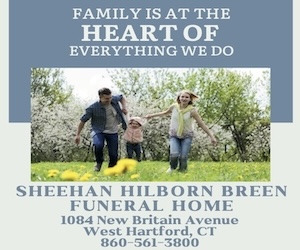Reviving the free loan society in Greater Hartford
By Cindy Mindell
WEST HARTFORD – Lending without interest is a core Jewish mitzvah. Jewish law, spelled out in the book of Exodus, directs, “When you lend money to My people, to the poor person with you, you shall not behave toward him as a lender; you shall not impose interest upon him.”
The instruction is repeated in Deuteronomy 15: “If there will be among you a needy person, from one of your brothers in one of your cities, in your land the Lord, your God, is giving you, you shall not harden your heart, and you shall not close your hand from your needy brother. Rather, you shall open your hand to him, and you shall lend him sufficient for his needs, which he is lacking.”
For generations, Jewish communities throughout the world have maintained this law and tradition by way of the gemach (also spelled gamach), a Hebrew acronym for gemilut chasadim, meaning “acts of kindness.”
In modern times, the gemach has taken the form of the Jewish or Hebrew Free Loan Society established by Jewish immigrants to the English-speaking world. Some of the gemachim created in U.S. communities between 1880 and 1914 by Eastern European Jews are still in existence today. Originally established to provide short- and long-term monetary loans, the gemach concept has expanded to include free loans of household items, clothing, services, and advice, among other offerings. The economic crisis of 2008 saw a revival of the tradition.
A new gemach has taken root in West Hartford, spearheaded by Elisha Russ-Fishbane, assistant professor in the Wesleyan University Religion department and Jewish and Israel Studies Program.
The idea was inspired in April 2013, when a relative who was visiting the Russ-Fishbane home unexpectedly needed a wheelchair on Shabbat, and the family was unable to acquire one.
Two months later, Russ-Fishbane had laid the foundation for the Greater Hartford Gemach, whose sole purpose is to provide a communal depository of durable medical equipment available for temporary loan, free of charge. Housed in the basement of Beth David Synagogue in West Hartford, where Russ-Fishbane is a member, the gemach is open to the community at large, regardless of affiliation or background.
The first donated items were two wheelchairs from Jefferson House in Newington, a Hartford Hospital facility that provides long-term care and rehabilitation services to seniors. The gemach has received a steady stream of donations from local community members.
Russ-Fishbane says that the generosity of the Jewish community was driven home for him when an individual contacted him to see if a certain item was available through the gemach. “We didn’t have it on hand and so I sent out an email soliciting donations,” Russ-Fishbane recalls. “Within minutes, I received more offers to help than I knew what to do with.”
The idea of the gemach is simple, he says: If you need an item on a temporary basis, you borrow it free of charge and return it when no longer needed. You only pay if you were responsible for damage or breakage of the item borrowed.
Currently, the gemach offers a range of items, from wheelchairs and walkers to raised toilet seats and bath benches. Organizers hope to expand the inventory by way of a fundraising effort, led by Beth David Synagogue member Donna Wolf. For example, the gemach would provide Shabbat meals for home-bound and hospitalized Jews in the Greater Hartford area.
“It is easy to overlook the traditional functions of a synagogue beyond its primary schedule of prayer services,” says Rabbi Yitzchok Adler of Beth David Synagogue. “As a center of Jewish life, a synagogue strives to be the agency through which kindness and community concerns can be channeled. The Gemach housed at Beth David serves that purpose.”
Russ-Fishbane says that the project has already garnered strong support from local rabbis and a generous offer from Yossi Kosher Catering in West Hartford to provide discounted meals for those in need.
In the few months since the gemach was launched, more and more people have begun to benefit from the communal resource, Russ-Fishbane says.
“A tradition in the Babylonian Talmud (Shabbat 63a) teaches that lending is even greater than charity,” he says. “Maimonides (Book of Commandments, no. 197) explains this preference on account of the greater dignity it affords the beneficiary. It is my hope that the Greater Hartford Gemach will continue to be a symbol of the generosity of this great community for many years to come.”
For more information, to donate funds or items, or to request an item: Elisha Russ-Fishbane, erussfishbane@wesleyan.edu.
Comments? email cindym@jewishledger.com.









 Southern New England Jewish Ledger
Southern New England Jewish Ledger













